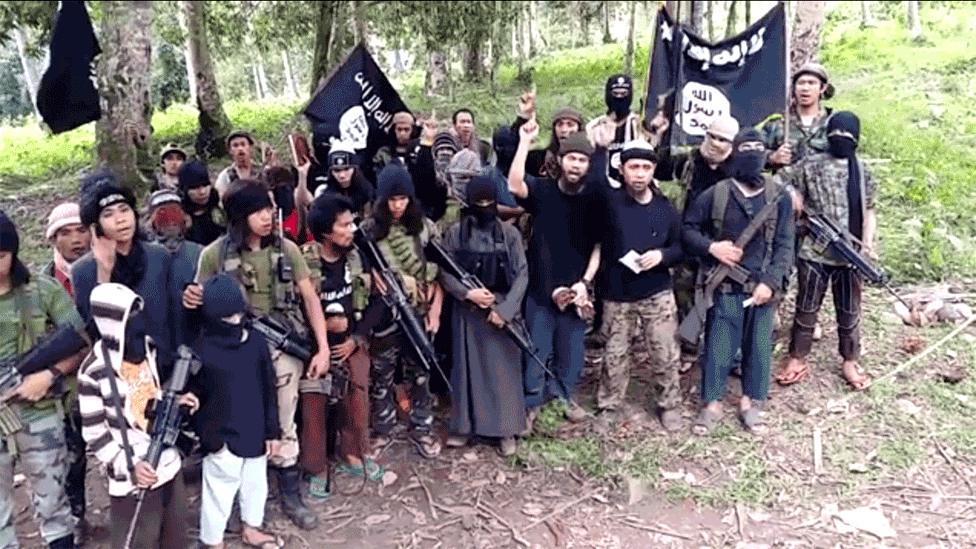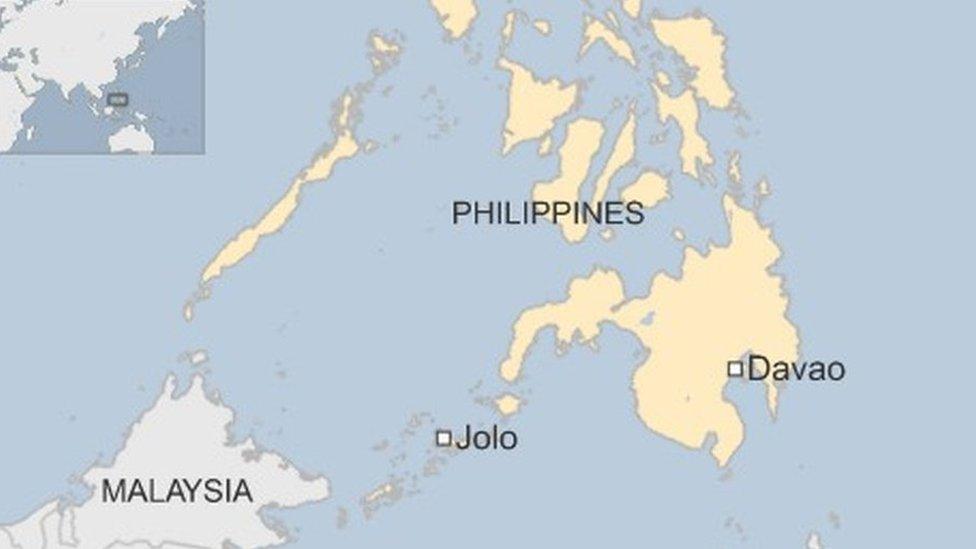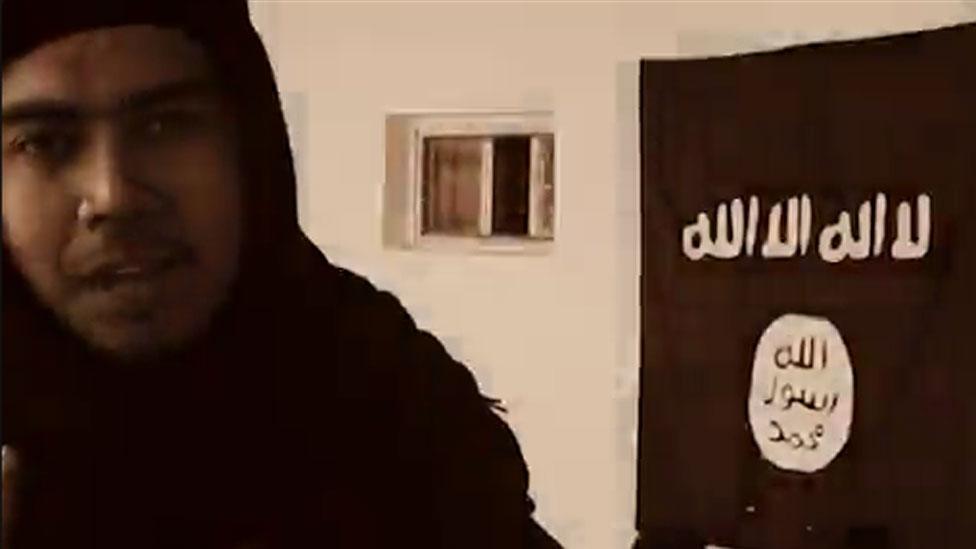Philippine Abu Sayyaf militants free hostage Marites Flor
- Published

Abu Sayyaf is one of several groups in the Philippines to have pledged allegiance to the Islamic State group
Militants in the Philippines who recently executed two Canadians have freed a woman they were also holding.
Marites Flor, a Filipina, was one of four hostages kidnapped last September from the city of Davao by Islamist separatists Abu Sayyaf.
In April, the militants executed John Ridsdel after ransom deadline expired, then last week executed Ms Flor's partner, Robert Hall.
It was not immediately clear why Ms Flor had been freed.
The Philippines is opposed to paying ransoms to Abu Sayyaf.
Officials said she had been left outside the house of a politician and was now receiving medical checks.
A Norwegian man, Kjartan Sekkingstad, is still being held by the militants at their stronghold on the remote southern island of Jolo.
Abu Sayyaf is a fractured network of militants, and some of its factions have sworn allegiance to the so-called Islamic State.
In recent weeks, a video emerged online urging Muslims in South East Asia to unite behind one Abu Sayyaf leader, Isnilon Hapilon and carry out jihadist attacks.

What is Abu Sayyaf?

One of smallest but most radical of Islamist separatist groups in southern Philippines, its name means "bearer of the sword" in Arabic.
It split from the larger Moro National Liberation Front in 1991. Membership is said to number in the low hundreds.
What does it want?
The group has been agitating for the creation of an independent Islamic state in predominantly Catholic Philippines, and uses tactics such as hostage-taking and bombings to pressure the government.
Several of its factions have pledged allegiance to the so-called Islamic State.
How dangerous is it?
Numerous Filipino and foreign civilians have been kidnapped in south Philippines and parts of neighbouring Malaysia over the decades, and used as hostages to extract ransoms.
Though some have been released after negotiations or attacks by Philippine forces, others have been murdered when demands were not met.
Abu Sayyaf has also said it carried out bombings in cities in the south and a ferry bombing in 2004 in Manila Bay that killed more than 100 people, considered one of the worst terror attacks in the Philippines.

- Published14 June 2016

- Published14 June 2016

- Published6 April 2016
